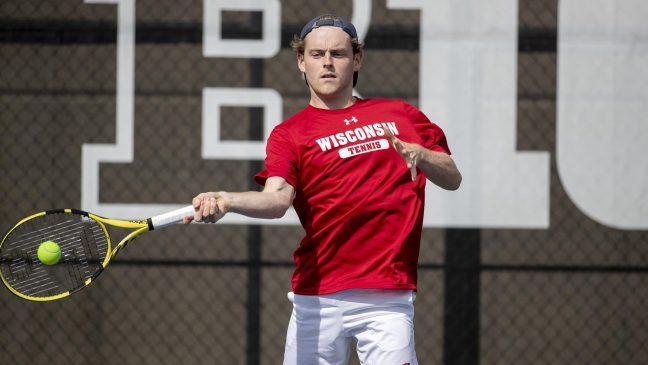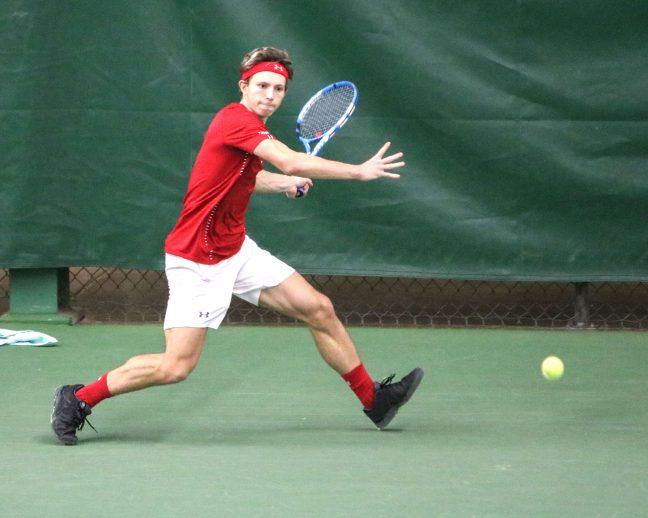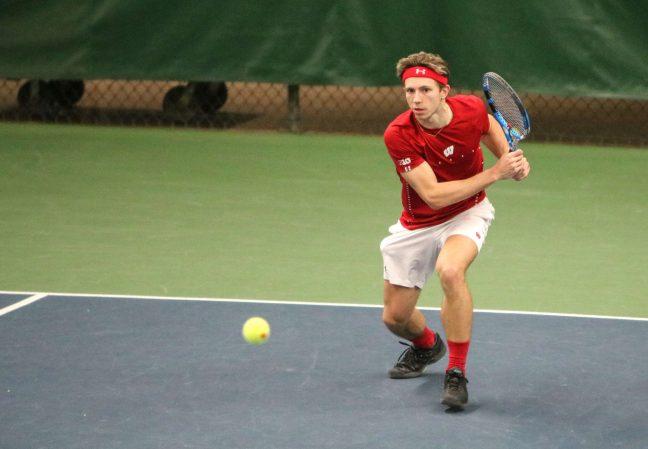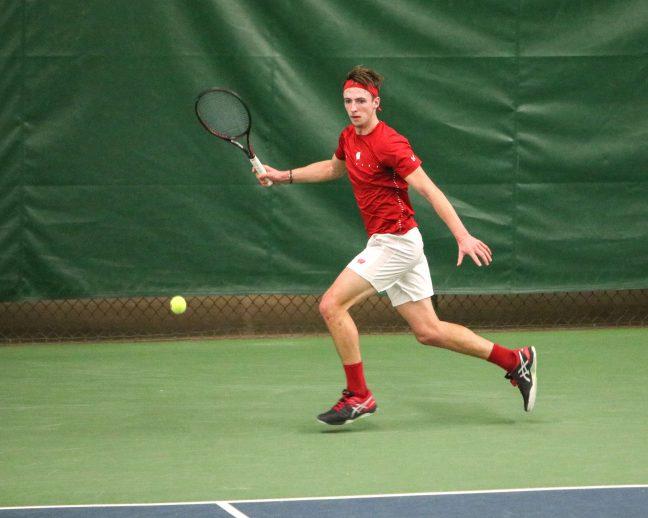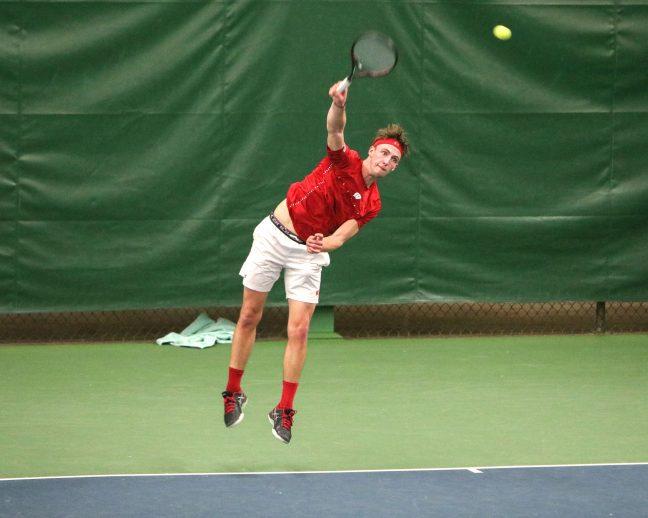Next to golf, tennis arguably may be the sport where performance is most influenced by an athlete’s mentality. Talk to any tennis player and they’ll say the game is all about confidence and emotions.
It makes sense. Tennis pits two individuals competing face-to-face. Losing could feel a lot more personal compared to other team sports, and those feelings can easily carry over to the next match.
For a newcomer in collegiate tennis, confidence could be difficult to maintain after being thrust into a higher level of play.
If you think you can break the confidence of Chris Freeman, though, good luck.
Freeman, a freshman on the Wisconsin men’s tennis team, is enjoying one of the hottest streaks on the team over the last couple matches, winning seven of his last eight matches in singles.
And all of that has come after a 3-5 start to the season.
A five-star recruit out of Costa Mesa, Calif., Freeman has become a pivotal component in the Badgers’ singles lineup. Lately, Wisconsin has struggled at the crucial doubles point and has had to rely on his redemption in singles.
With wins regularly coming in from Wisconsin’s usual top three spots of Moritz Baumann, Marek Michalicka and Patrick Pohlmann, success at the bottom of the lineup has been vital toward success.
“We’re looking for guys to step up and play really well — our doubles and in the bottom of our lineup,” head coach Greg Van Emburgh said. “I think we want to continually try to improve that as we progress through the season and I think Chris is one of the guys who has done that.”
Freeman retained an open mind during the beginning of the season, saying the idea of “having nothing to lose” as an untested newcomer helped him cope with the bumpy beginning.
But after a minor adjustment of his game play mentality, Freeman’s fortunes changed. Early in the season, he says, he thought too much about who he was playing against. Now, all he concentrates on is the ball.
Remarkably though, the change in Freeman’s mindset was not prompted by defeating a big name opponent, as might be expected. Instead, the adjustment occurred following a loss in a match against the University of Miami.
“I think in Miami, even though I lost down there, I was really able to stay in the match — the guy was a good player — I got fired up and when I get fired up I kind of zone into the match and really get into a tunnel vision,” he said. “After that I was really able to focus on my game, always get fired up for matches and play the ball rather than playing the opponent.”
Freeman hasn’t shied away from important matches either. In a Big Ten conference with a deep talent pool and a heated race for the crown, Freeman has a spotless 4-0 record.
Baumann describes tennis as being all about putting those emotions on display and using them to compete hard. Van Emburgh cites that idea as a reason why Freeman has seen consistent success as of late.
“He’s getting really tough and competitive out there on the court — more than I’ve seen in the past, which I think helped him raise his level,” Van Emburgh said.
As a result, Freeman’s success has also influenced the mentality of his teammates. Now that more wins are coming from the bottom of the lineup, some of the stress that was placed at the top has since been alleviated.
“Over the last eight matches [Freeman] has played incredibly good,” Baumann said. “It’s a good feeling, it takes pressure off yourself when you know you have good guys down low who have a good chance to win matches. It’s nice to see that.”
While his strides have caught the attention of coaches and teammates, Freeman knows his potential has yet to be tapped.
He has a list of things he hopes to further improve upon in the near future, including his transition game, consistency, smarter play and sealing points up at the net.
But the list of potential improvements does not in any way remove that confidence. Instead, Freeman smiles, shrugs and just looks forward to improving.
“Couple things to work on, but getting better,” he said.


